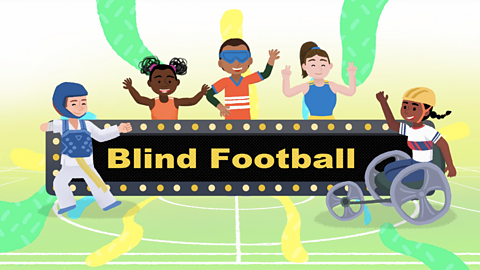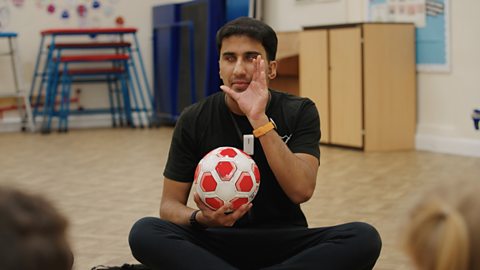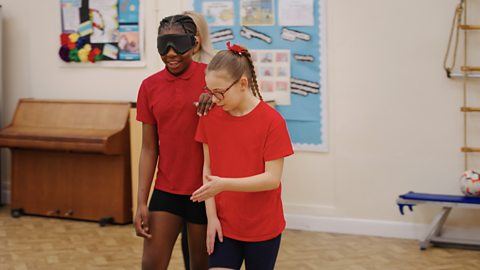Football dominates many children’s evenings and weekends every season, but lots of disabled young people are left on the sidelines with less chances than their non-disabled peers to play an active part in the sport.
The Premier League hopes to help tackle this by developing more opportunities for children to play accessible and inclusive games. One such example is the pan-disability football festival they hosted in summer 2024, welcoming hundreds of children across three days at Wolverhampton, Middlesbrough and Chelsea.
Super Movers for Every Body went down to Chelsea’s training ground in Cobham to meet some of the super movers of the day and find out about their inspiring journeys.
Millie Bright: I think it's an incredible opportunity. These sorts of events are vital for everyone to feel involved, and to have the equal opportunities which we always speak about in football is so important. No matter the challenges, no matter our differences, when we come together and play football, we're all the same.
V/O: Physical activity plays an important role in the healthy development of children, and taking part in P.E. in sport benefits their physical, mental and social wellbeing. But for lots of disabled children, accessing sport can be a challenge, something their non-disabled peers may not always be aware of. When given the opportunity, sport can be a lifeline for children from marginalised communities, as showcased at the Premier League's disability festival here at Chelsea. And we caught up with some of the superstars of the day.
Connor: I love football because it gave me a purpose and gave me a belonging to a team. When I was on that football field, I felt like I belonged, that was my, like forte. Theirs had been maths or English, but mine was getting a football on my feet playing football. Football is that type of sport where anyone should be allowed to play. It doesn't matter what they believe in, the way they look, you should be allowed to play and enjoy yourself as much as an average person who doesn't have a disability.
James: Since I got the cochlear implant, it made it a lot better, because like I can hear the players talking. Sometimes I don't know what to do and then they can tell me what to do. It made me more confident because it made me have friends similar to me, like disability people and it makes me more in the world. I love football because it's my passion.
Tom Newnham: James has a hearing impairment, so obviously he would struggle within mainstream football. He's currently on the England pathway and plays for us at Bournemouth and is a really good little footballer. I would say James is quite quiet on a day to day basis, but as soon as you get him on the football pitch he comes alive. Days like today are really, really important. There are not many opportunities for children and adults with disabilities or learning difficulties to be able to play football. Everyone turning up to play the game really sort of embodies what disability football is all about.
Shantaiyah: I started playing football when I was in year four. I'm still playing it now, I really enjoy it. I find that it's a fun sport to do.
Billie Mae: Obviously, it gets you fitter, gets you all big and all that.
Shantaiyah: And it's something that I can do, like an everyday thing. Just get a ball, dribble, whatever, do whatever. Some people say they don't like football, but they never tried it, so this is the opportunity to try it. I used to be so lazy and now I got into football, I'm all around the place! Doing things shouldn't matter about how you look, what age you are, like what disability you have.
Billie Mae: It's just football, like, just have fun man!
V/O: Lots of different faces, lots of different disabilities. But one thing is clear to see… sport is for everyone, they just need the opportunity to shine.
Watch this film with British Sign Language
Watch this film with audio description
Watch this film with British Sign Language and audio description
For the Premier League, their disability football festivals are a celebration of how the organisation's community programmes connect young people with football opportunities across the UK. Chelsea captain Millie Bright attended the accessible event to support the disabled youth teams. Speaking from the field, she said: “These sorts of events are vital for everyone to feel involved and have the equal opportunities we speak about in football".
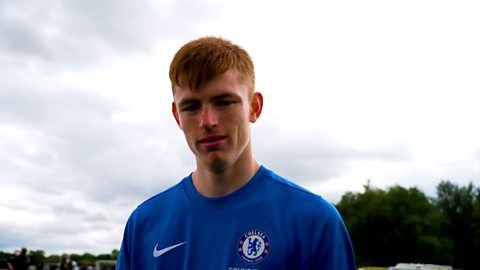
Conor, Chelsea
For 16-year-old Conor, football has given him “a purpose and belonging". Conor has cerebral palsy and a moderate learning disability. He initially joined the Chelsea Foundation by signing up for the adult disability team. Whilst Conor tried to join mainstream football, he felt it was a struggle for him, so transitioned to the disability programme where he has been able to grow and flourish. Now, he has joined the future coaches club run by the Foundation to inspire others and provide opportunities to learn and develop: “You should be allowed to play and enjoy yourself as much as a person who doesn’t have a disability".

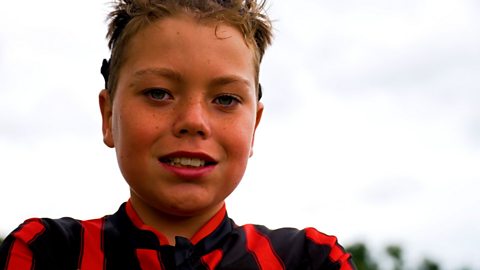
James, AFC Bournemouth
James, 11, was diagnosed with a hearing impairment in 2015 and wears cochlear implants. After struggling to find inclusive football opportunities near his home, James joined the disability specific ‘Kick sessions’ at AFC Bournemouth. Even though he'd never touched a ball before, coaches quickly noticed his sharp skills on the pitch and James is now part of the Ability Counts U12s as well as being involved with the England talent pathway. For James, inclusive sport has allowed him showcase his talent, grow in confidence, and build positive friendships: “It made me have friends… it made me more in the world" he said.

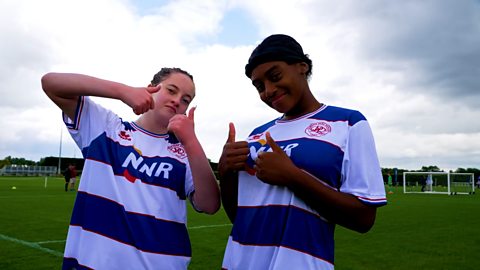
Billie Mae and Shantaiyah, QPR
Billie Mae and Shantaiyah met each other when they joined the Queens Park Rangers team and fast became friends. For them, football has been an aid to increase their fitness and improve their social wellbeing, as Shantaiyah said, “I used to be so lazy, then I got into football and I’m all around the place!”. Playing football has benefitted the pair in many ways and they now recommend other disabled children to have a go at the sport. "It doesn't matter what you look like or what disability you have," Shantaiyah added, with Billie Mae agreeing: “It’s football, just have fun!”

Accessible and inclusive football opportunities can change disabled children and young people's lives. From the happy faces, team spirit and proud families at the inclusive sport event, that was clear. And given the opportunity, disabled people can enjoy sport just as much as their non-disabled peers - not just enjoy it, excel at it.

